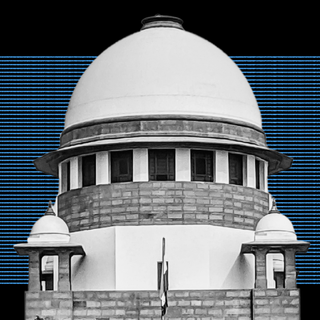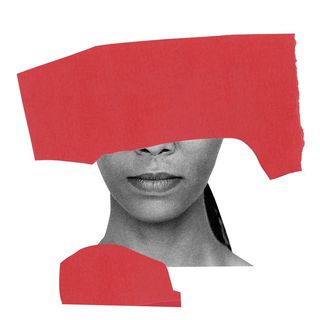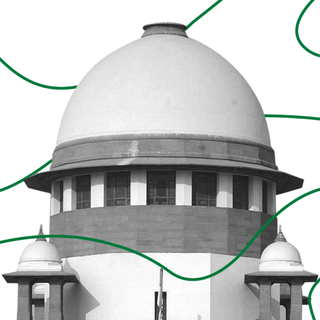
The Govt Will Give Medals To Doctors, Nurses On Covid Duty. There Are Better Ways to Thank Them
Medical personnel face delayed salaries, harassment on job, and a crushing mental health crisis.

The government has decided to rope in medical students and interns to increase the capacity of professionals within the health system. Other related measures to incentivize personnel and boost India’s response to Covid19 include: prioritizing those on Covid19 duties for recruitment within government hospitals, offering frontline workers insurance cover, and administering vaccinations to workers on Covid19 duty. And, like a crowning jewel, those who complete 100 days of Covid19 duty will be given a special medal — called the Prime Minister’s Distinguished Covid National Service ‘Samman’ — as a mark of respect.
The definition of ‘samman’ evidently means different things to different people. A medal is in line with the government’s previous efforts to show appreciation to healthcare workers: clapping for them, showering flower petals in the sky, calling them “Covid warriors,” announcing monetary schemes and benefits that take months to accrue. For individuals within the health system who are stretched grievously thin, this culture of appreciation feels gimmicky. Such declarations pack little substance and fail to address the real concerns and needs of frontline workers. They simply push frontline workers’ anxiety and distress far away from scrutiny.
The second Covid19 wave has left medical personnel on “the brink of collapse” — a fate echoed by a health system struggling to meet demands. “There are hospitals but there is a shortage of doctors. Beds are being added but there is a shortage of health care staff,” a Supreme Court bench noted last week. The public healthcare system continues to operate at a dismal ratio of 0.08 doctors for 1000 people, according to previous estimates, and similarly worrying numbers for nurses and lab technicians, amongst other personnel. The shortfall of professionals is worsened at a time when an overload of Covid cases has to be balanced with non-Covid patients — all against the backdrop of lacking supplies.
While the country hails them as frontline workers and indulges in empty acts of adulation, medical personnel continue to face delayed salaries, harassment on job, and a crushing mental health crisis. Many professionals still continue to work without proper PPEs and other protective gear. Medical staff at a Rohtak Hospital, Haryana, last week said they had not received salaries for over a month due to “procedural delays.”
“The government had promised double salary to Covid healthcare workers,” Sanjay Singhmar, a union leader who led the protests, told The Tribune. “Double salary seems to be an illusion at a time when the state has failed to disburse our regular salary.” Staff members of other hospitals have noted similar delays in salary payment. Moreover, doctors, nurses, and attendants report harassment by patients’ families in recent weeks; in Mumbai’s Manavta Curie Hospital, for instance, a woman attacked personnel after her brother succumbed to Covid. Last year, several media reports showed the prejudice medical personnel faced in housing societies, when people physically attacked them or forced them to leave the area because they feared infection. The maltreatment continues as stray incidents.
Related on The Swaddle:
How Doctors Are the Unwitting, Frustrated Soldiers in the War Against Covid19
Even schemes and packages fall short in their claims. Last year, the central government had announced a Covid19 remuneration for Accredited Social Health Activists (ASHAs), who are the first line of defense in the rural health system. Even after months, most ASHAs said they haven’t received the money; some received it, but only after months of chasing it — and all of them noted that giving them Rs. 1,000 doesn’t begin to cover the mental and logistical cost of their work. More recently, there were reports noting the Pradhan Mantri Garib Kalyan Package Insurance Scheme, an insurance scheme of Rs. 50 lakhs which had been extended to about 22 lakh healthcare professionals, would expire in March this year — leaving many unprotected. The government ended up extending the timeline by one year following criticism. The insurance scheme helps families of doctors who died after contracting Covid19 — but until April 2021, only 287 had been settled under it.
Moreover, the sheer mental and emotional toll of a crisis of this scale has resulted in burnout for most professionals. A video of a doctor shared by thousands on social media echoes this exhaustion: doctors feel helpless, and the woman revealed how she was forced to comfort dying patients at their bedside on most days. Pleas from several other medical professionals make way to social media or stray conversations with people. Earlier this week, a doctor in a private hospital in Saket, New Delhi, died by suicide because of overwhelming stress.
For most healthcare professionals, the one thing that also builds into frustration and anger is the lack of preparedness for Covid’s second, overwhelming surge. No medal, no certificate can allay this disappointment. It begs the question: what is an appropriate way to appreciate healthcare workers, and how to separate constructive measures from rhetoric?
The deployment of medical interns and final year M.B.B.S. students for Covid duties, along with directing retired professionals to take charge, is arguably a good measure to reduce the workload on existing doctors. “It provides a boost to efforts of triaging,” the Prime Minister’s Office noted.
The Supreme Court’s directions regarding safeguarding the interests of health professionals are notable. The central government should ensure other facilities “such as availability of food, resting facilities during intervals between work, transportation facilities, non-deduction of salary or leave account, if afflicted by Covid,” or a separate helpline for medical urgencies for health workers.
In addition to that, medical professionals would tell you they need only one thing from people: that they respect Covid measures, not hold gatherings or rallies, and not question science.
When speaking to The Swaddle, a doctor from Kolkata expressed this frustration: “It would mean far more if the population actually took care of themselves. That would mean far more than thank you — by doing the social distancing, not partying, masking. We’re working 24/7 on this anyways. This is our job. It’s what we do for a living. But it takes a toll on us when young people — 30-, 35-, 40-year-olds are sitting on the ventilator dying. And you’re talking to family members day in and day out — ‘I’m sorry, they’re dying, I’m sorry’ — and, you know, it’s all avoidable had they just worn a mask.”
The narrative has been unequivocal: we laud our medical personnel, are indebted to them, respect them, shower them with awards. But perhaps that’s the fallacy with idolizing people — of treating them as heroes who should feel proud to serve the country in times of catastrophe. Most health professionals would tell you they are glad to be saving lives — but none of them signed up to watch their friends, family, and parts of themselves wither away.
Acknowledging the distress and responding to the concerns of medical professionals will be a good place to start recognizing them — even better, thanking them.
Saumya Kalia is an Associate Editor at The Swaddle. Her journalism and writing explore issues of social justice, digital sub-cultures, media ecosystem, literature, and memory as they cut across socio-cultural periods. You can reach her at @Saumya_Kalia.
Related


Why We Expect People With Invisible Disabilities To Learn To Act ‘Normal’
